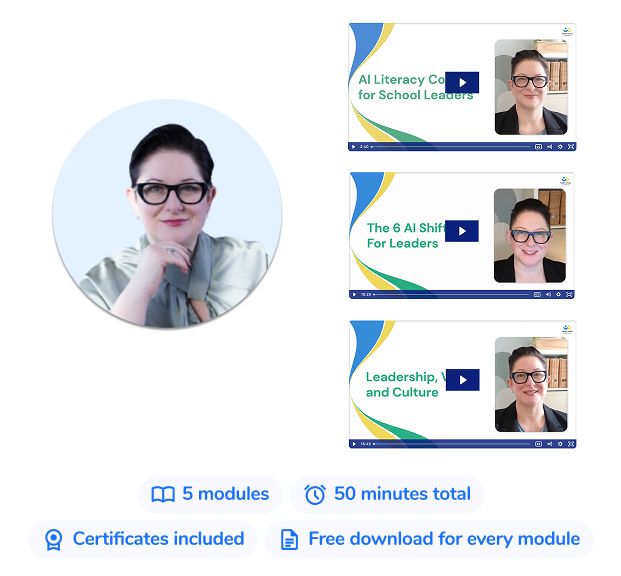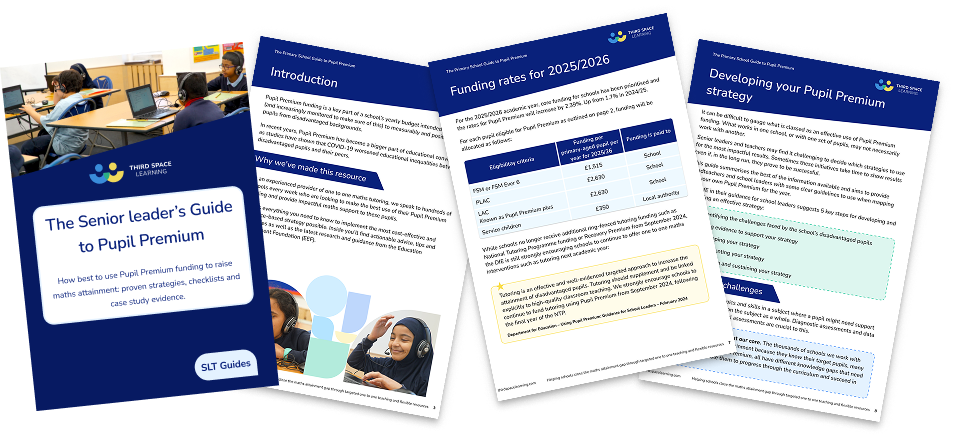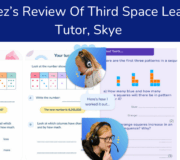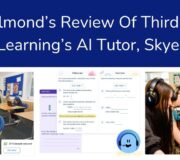The National Tutoring Programme 2023/2024: A Quick Guide For Schools
This article was originally published in 2023 and references the National Tutoring Programme (NTP). As of September 2024, schools will no longer receive NTP funding. Learn more about funding tutoring beyond September 2024.
Third Space Learning’s online tutoring supported over 20,000 pupils through the UK NTP.
As the National Tutoring Programme is now in its third year, we have completely updated this popular and handy guide for school leaders and teachers with the key points you should know for 2023 and beyond.
The National Tutoring Programme (NTP) was created to help schools in England mitigate the impact of coronavirus school closures on the young people who were most affected.
Now in its third year, the programme has gone through several changes and updates. This guide has everything you need to know about how it works now for 2023/2024 and what it means for your budget this academic year.
What is the National Tutoring Programme?
The National Tutoring Programme is a programme launched by the Department for Education (DfE) in 2020 to support schools and local authorities to provide tutoring for their pupils following the coronavirus pandemic. The funding provided is particularly targeted at children from disadvantaged backgrounds, as the evidence shows that they fell further behind, especially in maths, following the school closures.
The NTP seeks to make high-quality tutoring more accessible by providing primary and secondary schools in England with additional ring-fenced tuition funding.
In the 2023/24 academic year, each pupil eligible for Pupil Premium will receive a minimum of £67.50 in ring-fenced funding to spend on tutoring.

Is funding exclusively for pupils eligible for pupil premium?
NTP funding is not exclusively for pupils eligible for pupil premium. However, the funding has previously been calculated based on pupil premium eligible pupils; this is just a way of allocating funding per school. Teachers are free to use their discretion to decide which pupils need additional tuition.
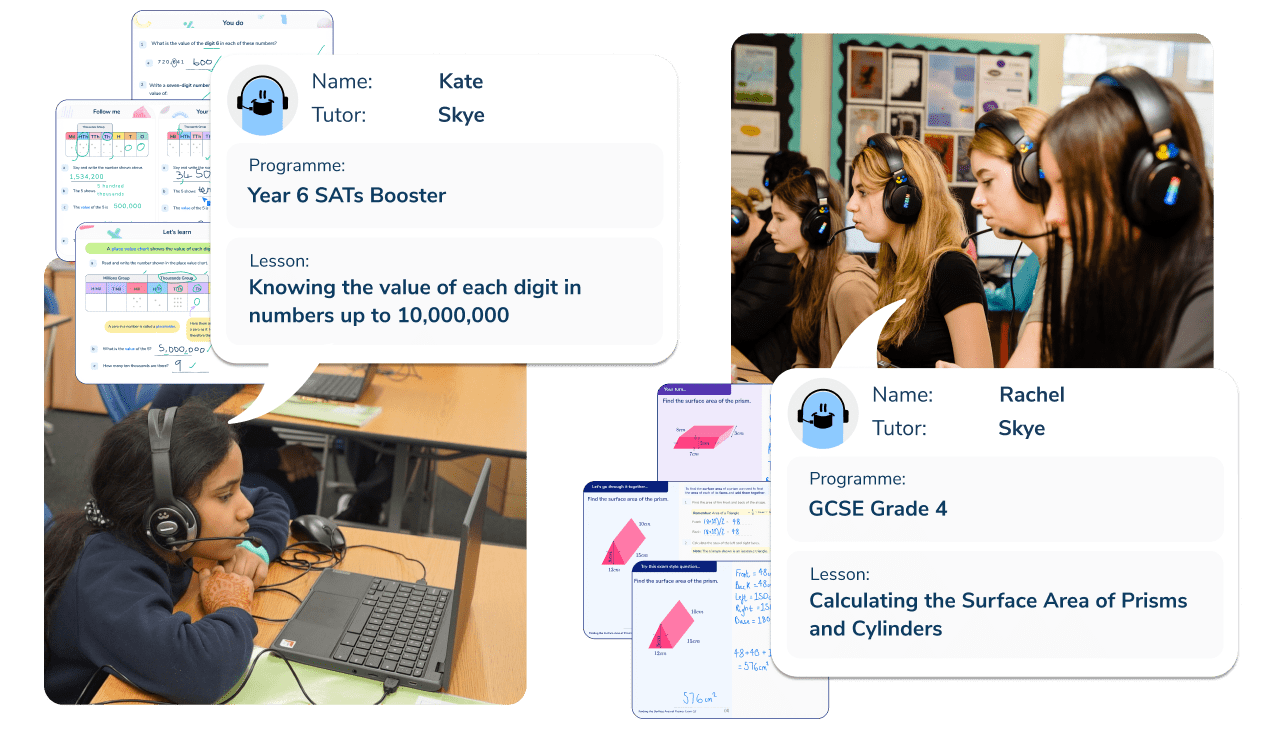
Meet Skye, the voice-based AI tutor making maths success possible for every student.
Built by teachers and maths experts, Skye uses the same pedagogy, curriculum and lesson structure as our traditional tutoring.
But, with more flexibility and a lower cost, schools can scale online maths tutoring to support every student who needs it.
Watch Skye in actionThe National Tutoring Programme (NTP) in 2023/24
In the 2022/23 school year, the National Tutoring Programme was completely overhauled – and simplified – in response to feedback from both schools and suppliers of tutoring on the process in place for previous years.
The NTP funding provided to schools must now be used on one or a combination of these three ‘routes’, all of them to drive forward in-school tutoring programmes.
- Academic mentors – full-time, in-house staff members employed to provide tutoring
- NTP Tuition partners – tutors recruited by external tutoring organisations, such as Third Space Learning, that are quality-assured by DfE
- School-led tutoring – members of a school’s own personnel, either currently employed or specifically engaged for this purpose, including retired, returning or supply teachers, support staff, and qualified teachers
Senior Leader's Guide To Pupil Premium
A detailed breakdown of the proven strategies that work towards closing the attainment gap for children in receipt of pupil premium.
Download Free Now!Tutoring is evidence-backed
Some schools have suggested they want greater freedom with how to spend government funds but the NTP is very clearly a tutoring-focused fund. The reason for this is that there’s a lot of evidence that this maths intervention can have the greatest impact in a relatively short period of time.
Research from the Education Endowment Foundation (EEF) shows that tuition is ‘the catch-up approach supported by the strongest evidence’.
One to one tutoring is particularly effective, and, in maths in particular, pupils achieved up to 5 months’ additional progress in randomised control trials.
“One-to-one tutoring is one of the few education approaches we know works consistently. The beauty of one-to-one is that it is a relatively simple intervention, so it can be scaled up to work in many schools.”
Lee Elliot Major, Former Director of The Sutton Trust, now professor of social mobility at the University of Exeter
At Third Space Learning we have been developing, refining, and expanding the delivery of our one-to-one maths tutoring for primary schools for over 8 years, and in more recent years have developed high quality programmes for KS3 and KS4.
Any school wishing to employ an external tutoring organisation must ensure they are an approved DfE Tuition Partner and, as such, meet the strict set of quality criteria set out by the DfE, including:
Route 1: NTP tuition partners
Any school wishing to employ an external tutoring organisation must ensure that the organisation is an approved DfE Tuition Partner. These tuition partners have been through a “quality assurance process by the Department for Education” which is to check that they meet the strict criteria covering issues of tuition quality and safeguarding.
Third Space Learning has been a tuition partner with the NTP since it first launched in 2020 and are proud to be continuing as an approved Tuition Partner for 2023/24.
We’ve now been providing online one to one maths tutoring to schools since 2013 and have worked with over 4,000 UK schools, teaching over 150,000 students.
We’re extremely proud to have been selected as an approved Tuition Partner and we offer:
- Experience working with schools and with disadvantaged pupils.
- Tutor training programme in place (including safeguarding training).
- Robust tutor recruitment.
- Tutor qualification and background checks.
- The systems and processes for school and pupil communication.
- Systems for monitoring delivery, quality assurance and tracking progress.
- High-quality tuition with evidence of impact.
- Excellent value for money.
Third Space Learning is an example of a provider with an innovative approach and they are proving popular with English schools.
The National Tutoring Programme, March 2021
Schools using Third Space Learning as their tuition partner also receive full access to all the resources in the Third Space Maths Hub at no additional cost, helping to raise attainment across the school, not just for those pupils signed up to the tuition.
“There are a couple of reasons that I recommend Third Space Learning. The resources on the Maths Hub are great, the one to one sessions are really good and the children enjoy them, and the progress the children are making is fantastic.”
Daniel Nelson, Headteacher, Choppington Primary School, Northumberland
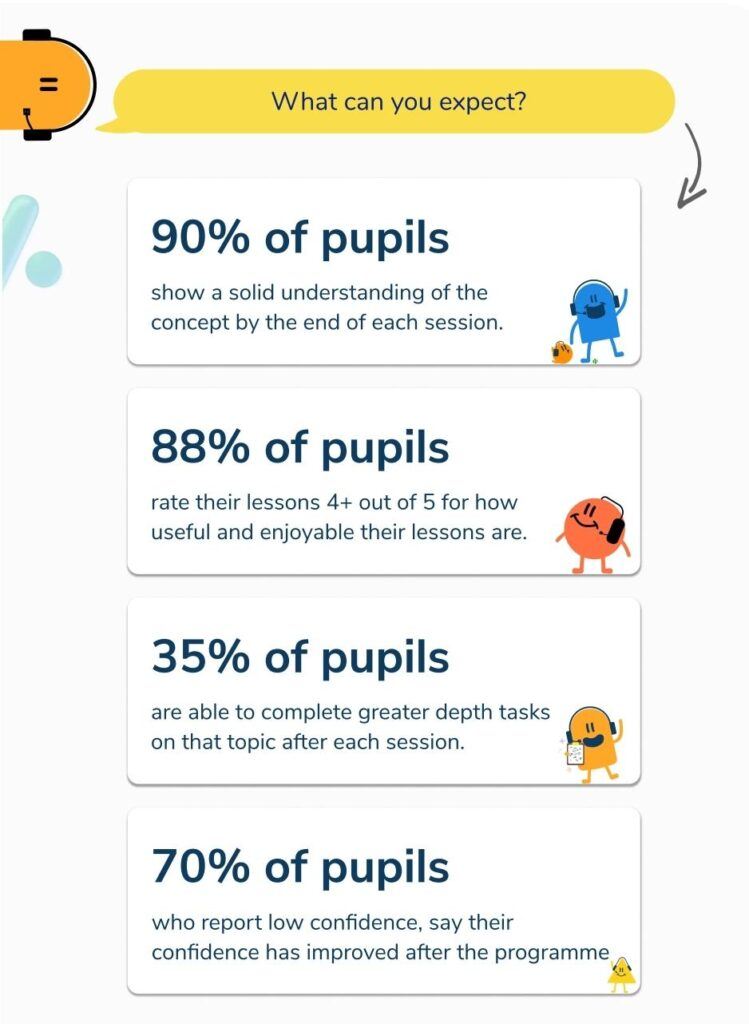
Read more: How funding from the NTP helped Morland Primary to raise attainment and Best online tutoring websites
Changes to the NTP Tuition Partner route for 22/23
In the first and second year, tutoring in schools from approved Tuition Partners was subsidised directly by the government; with schools only invoiced for a small % of the cost.
In March 2022, the Department for Education (DfE) announced plans to simplify the programme for 22/23. All NTP funding now goes directly to schools for them to decide how best to provide tutoring for their pupils. The subsidy is still available, but schools using approved external providers will be invoiced by providers for the full cost of tuition and then will be able to use their tuition funding to cover up to 60% of the costs.
External tutoring organisations must still be approved by the DfE to be eligible for National Tutoring Programme funding.
Changes for 2023/24
The National Tutoring Programme will cover up to 50% of the cost of tuition in this academic year.
Route 2: School led tutoring
Through the school-led tutoring route of the National Tutoring Programme, schools can use their tuition funding to cover tutoring delivered by ‘members of a school’s own personnel, either currently employed or specifically engaged for this purpose.‘
This includes teaching assistants, retired and returning teachers, supply teachers, support staff and classroom teachers.
Schools cannot use this funding route to fund core staff responsibilities, it must only be used for school led tutoring delivered outside of this remit.
All staff must complete mandatory free online tutor training from the Education Development Trust, although this is optional for tutors with Qualified Teacher Status.
Route 3: Academic mentors
Academic mentors are ‘salaried, in-house members of staff who work alongside teachers to provide one-to-one and small group subject-specific tuition’.
Schools should apply to Cognition Education, one of the three NTP providers for 22/23, to be assigned an Academic Mentor.
The minimum salary is £19,000 per year, rising to £21,000 for those with a graduate degree. Schools are free to set higher salaries if they wish.
Small schools are able to ‘share’ an Academic Mentor with other schools in their trust or local authority.
How schools receive their NTP Funding
The following information is taken from the funding allocations and schedules for 2023/24 on the DfE website.
There is no need to apply for this funding, schools will automatically receive their funding in three termly instalments in September, December and April via ESFA as part of the DfE’s scheduled payments to schools.
- All mainstream schools will receive a minimum of £67.50 in ring-fenced funding to spend on tutoring
- The fund can be used to cover 50% of your tutoring costs, up to a maximum of £18 per hour
- Funding is allocated to provide each pupil with 15 hours of tutoring
- Funding must be spent on tutoring, and any unspent funding will be clawed back at the end of the academic year
Schools are free to spend above or below £18 per hour, and may provide more or less than 15 hours per pupil. They’re also free to use the funding to support pupils who are not eligible for Pupil Premium. It is simply a way to allocate funding per school.
At the end of the school year, schools will be required to report on:
- Total hours of tutoring delivered
- Total cost
- Total pupils supported
Third Space Learning’s tuition costs almost exactly £18 / per hour for each personalised one to one lesson. As Tuition Partners are free to set their own hourly rate, other providers may charge tuition above or below £18 (usually this is for group tuition).
Which pupils is the National Tutoring Programme funding for?
The NTP is available to pupils in Years 1-11 across all state schools.
Whilst the NTP bases the allocation of funding according to each school’s Pupil Premium numbers, schools are able to use the funding to support pupils in the way they see fit, including for pupils not eligible for Pupil Premium. However, the NTP recommends that schools prioritise their Pupil Premium cohorts for tuition sessions as research suggests these pupils have been most negatively impacted by the pandemic and resulting lockdowns and school closures.
Since 2013, Third Space Learning has worked with 4,000+ primary schools to help close the maths attainment gap through online tuition in maths from maths specialist tutors. Helping disadvantaged pupils in particular has always been a big part of what we do, so we fully support the focus on closing the attainment gap.
The following one to one maths tutoring programmes are available from Third Space Learning:
- Year 3-5 Catch Up programme
- Year 6 Catch Up programme
- KS2 SATs Revision Programme
- Year 7 Catch Up Programme
- GCSE Revision Programme
What can (and can’t) the funding be used for?
The funding can be used for both one to one and small group tutoring and learning interventions, but groups must be no more than 6 pupils. Research suggests that one to one tutoring is particularly effective.
The DfE is very clear that the funding cannot be used to ‘top up’ existing staff salaries, and that all funding must be spent only on tutoring, and any tutoring delivered must be ‘additional to any staff member’s core roles and responsibilities’.
For primary school pupils, funding is only available for tutoring in mathematics, English and science. For secondary schools, humanities and modern foreign languages are also included.
Pupils can receive tuition from more than one NTP tuition partner at a time. This is particularly useful if you would like pupils to receive support in more than one subject. Similarly, there is no limit on the number of providers that a school can work with at once.
What other funding is available to help pupils catch up?
As well as the NTP, schools also have the following funding options to provide catch up support to the pupils who need it most:
- Pupil Premium
- Recovery Premium
About Third Space Learning
As the UK’s leading online maths tutoring company, we’ve been working with 7 to 16 year olds in schools across the country since 2013. In fact, since we began, we’ve provided online maths tuition to over 100,000 pupils across 3,000+ schools.
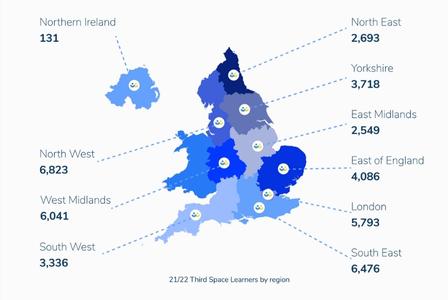
The majority of our schools use our programmes as a way to support their Pupil Premium cohorts, which means we have 9 years’ experience of successfully working directly with schools to close the attainment gap for disadvantaged pupils through high-quality tutoring.
Why have 1,000+ schools chosen Third Space Learning as their favourite tuition provider?
- Efficiency. We are able to provide tuition to up to 15 pupils simultaneously, provided they have access to a laptop and headset (which we provide). This means you can intervene with 3x as many pupils, and do it all within a single hour of the school day as opposed to creating disruption by pulling children in and out of class throughout the week for their tutoring sessions.
- Access to hundreds of maths resources is included. While you will want to target your catch up tuition funding to those in greatest need, we know that many other pupils across years 1 to 6 will need additional support. Schools using the 1-to-1 intervention receive full access to all the resources in the Third Space Maths Hub at no additional cost, helping to transform maths attainment across your whole school.
- Effectiveness. We have a proven track record, having worked with over 100,000 school pupils, the majority from disadvantaged backgrounds and in receipt of pupil premium, to boost their maths attainment levels, develop their reasoning and build their confidence in maths.
- Tutor quality. Our AI maths tutor, Skye, is trained by qualified teachers and maths specialists using the same evidence-based teaching methods and pedagogy that we’ve used and developed for more than a decade. Every prompt Skye uses is developed from the expertise, knowledge and data from 2 million+ hours of maths tutoring delivered to over 170,000 pupils. The lessons our specialists create for Skye are national curriculum aligned to ensure lessons, modelling and scaffolding match the curriculum and teaching strategies used in class.
- All of our maths specialist tutors are fully background-checked (local Police Clearance Certificates and UK DBS checks) before joining us. They then receive three weeks of intensive tutor training before their first session, followed by regular ongoing training and CPD. Training covers areas such as safeguarding and how to deliver effective online tuition, as well as maths-specific training, including spotting misconceptions, developing mathematical language and preparing for SATs and GCSEs.
Since we first started 4 years ago, pupils on the programme have shown greater confidence, improved results, and even greater clarity and understanding for some of the trickier maths concepts.”
Catherine Prole, Deputy Headteacher, St Michael’s Primary School, Trafford
Find out more about St Michael’s Primary School experience with Third Space Learning.
What do schools receive as part of Third Space Learning’s catch up tuition?
- Maths concept diagnostic skill check in every lesson to help identify individual knowledge gaps and establish baseline knowledge.
- AI maths tutoring that matches the pitch and pace, and learning needs of each pupil.
- One to one AI maths tutor, Skye, is trained by teachers and maths experts using evidence-based tutoring strategies.
- Proven evidence of rapidly increased maths attainment with the most disadvantaged children, with hundreds of thousands of children in receipt of pupil premium taught so far.
- Multiple pupils can have a 1-to-1 lesson within the same timeslot.
- All lessons are recorded for safeguarding and training purposes.
- Flexible online lessons that take place from school or from home.
- Session reports to understand where your pupils are successfully catching up and where they might need more help.
- Full access to all maths resources and video CPD from the Third Space Maths Hub to help raise maths attainment across the school.
Find out more about online one to one AI maths tutoring with Skye:
Frequently Asked Questions
All State-funded schools in England will automatically receive the funding, which can be spent on pupils in Year 1-11. Schools will receive funding according to the number of pupils eligible for Pupil Premium but are free to use the funding to support whichever pupils they see fit.
The NTP will cover 50% of the cost incurred by schools, up to a maximum of £18 per hour. As such, schools can use NTP funding to cover £9 for each hour of tutoring delivered.
As an example, online one to one maths tutoring from Third Space Learning comes to £230 per pupil per term (12 sessions) or £19.17 per pupil per session. Schools can use NTP funding to cover £9 of the cost for each session, and can use alternative funding (such as Pupil Premium) to cover the remaining £10.17. Across a term, this works out to £108 covered by the NTP and £122 covered by the school.
For contrast, online one to one tutoring from other Tuition Partners ranges from £25 to £70+ per hour, meaning schools will have to cover more of the cost from their own budgets.
There is no need for schools to apply for National Tutoring Programme funding and it will automatically be sent to schools. Schools can then use this funding to cover £10.80 for each tutoring session delivered to their pupils. The funding must be spent on tutoring and any unspent funding will be clawed back at the end of the academic year. Schools wishing to use an external tutoring organisation must ensure they’re quality-assured and approved by the DfE.
Funding has been confirmed until the end of the 23/24 academic year. For the 23/24 academic year, the NTP will cover up to 50% of the cost of tuition.
In previous years, the programme has been run by several organisations, including the EEF, The Sutton Trust, Nesta, and Randstad.
For 22/23, the DfE have enlisted the expertise of 3 external delivery partners;
Tribal: quality assurance for tuition partners
Education Development Trust: training for new school-based tutors and academic mentors
Cognition Education: recruitment and deployment of academic mentors
In previous years, tutoring from DfE-approved Tuition Partners was subsidised directly from the DfE, with the school only invoiced for the portion not subsidised. As of the start of the 2022-23 academic year, all NTP funding goes directly to schools. Tutoring is still available from DfE-accredited Tuition Partners like Third Space Learning, but schools are invoiced the standard price and can use their NTP funding to cover the cost, rather than receive a subsidised invoice. If schools wish to use their NTP funding on external providers, they must still choose accredited partners such as Third Space Learning.
DO YOU HAVE STUDENTS WHO NEED MORE SUPPORT IN MATHS?
Skye – our AI maths tutor built by teachers – gives students personalised one-to-one lessons that address learning gaps and build confidence.
Since 2013 we’ve taught over 2 million hours of maths lessons to more than 170,000 students to help them become fluent, able mathematicians.
Explore our AI maths tutoring or find out about online maths tuition for your school.
